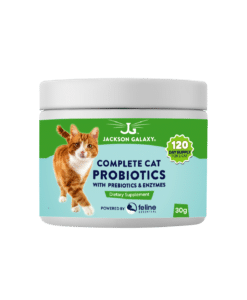You may think we’re being a bit dramatic to ask why cats are 2nd class citizens – but if you’re a cat lover, you likely already know the answers.
For centuries, cats have shared our homes and hearts, yet when it comes to how we treat them, cats often seem to be left in the shadows of their canine counterparts. Many people see cats as convenient, low-maintenance pets or even as home accessories—just something nice to have around. But this view couldn’t be further from the truth. In fact, cats are misunderstood in more ways than one, and it’s time we started giving them the same care, attention, and respect that is shown to our canine friends.
Cats Aren’t Studied As Much As Dogs
It’s no secret that dogs steal the spotlight in pet research. They’re the go-to animals for studies on behavior, nutrition, and health. This attention has resulted in major strides towards understanding how to keep dogs healthy and happy. But what about cats? Unfortunately, felines don’t get the same level of focus. We understand that cats may not be as ‘easy’ to study as dogs, but while the natural pet health world is booming with products and research tailored to dogs, cats are often overlooked. Cats are unique animals with specific dietary needs, different behavior patterns, and distinct health requirements that don’t get the same recognition.
Misunderstood – Even By Veterinarians
Surprisingly, even some veterinarians admit to being uneasy around cats. Cats can be more challenging to handle and understand compared to dogs, which may lead to less comprehensive care. Many vets, especially those not specializing in feline care, may not be as informed about a cat’s emotional needs or how to treat stress-related behaviors. This misunderstanding can result in less effective treatments or recommendations that don’t address a cat’s true needs.
Cats Require More Effort Than Dogs
Contrary to popular belief, cats aren’t always the “easy” pet. When it comes to transitioning them onto a better, more natural diet, cats require patience, consistency, and dedication. While many dogs will eagerly devour fresh, wholesome food, cats can be more particular. They may take weeks or even months to adjust to a new diet. A fresh, healthy diet for your cat isn’t just a matter of convenience – it’s a long-term investment in their overall well-being.
Enrichment Is Essential, Not Optional
Another major misconception about cats is that they’re happy being left alone to sleep all day. While it’s true that cats enjoy lounging, a bored cat is often a stressed cat. In the wild, cats are natural hunters, constantly exploring their environment, stalking prey, and staying alert. Domestic cats may not have the same opportunities for mental and physical stimulation, which can lead to behavioral issues, anxiety, or even health problems. Enrichment is essential for cats – just as it is for dogs. Whether it’s interactive toys, puzzle feeders, or creating a stimulating environment, keeping your cat engaged is key to their happiness and well-being.
Let’s Give Cats the Love and Respect They Deserve
It’s time to change the narrative. Cats are just as deserving of our attention and care as dogs. They’re not accessories or low-maintenance housemates; they are complex, intelligent creatures with specific needs. By understanding and catering to these needs – whether through better nutrition, mental stimulation, or veterinary care—we can improve the quality of life for our feline friends.
Isn’t it time we started showing our cats the same love and respect we give to our dogs? Check out our interview with Dr. Judy Morgan to better understand ways we can provide improved health and wellbeing for our feline family members. The more we learn about cats, the more we can ensure they lead happy, healthy lives – just like they would in the wild. Let’s work together to make sure cats are no longer second-class citizens in the world of pets.




Recent Comments